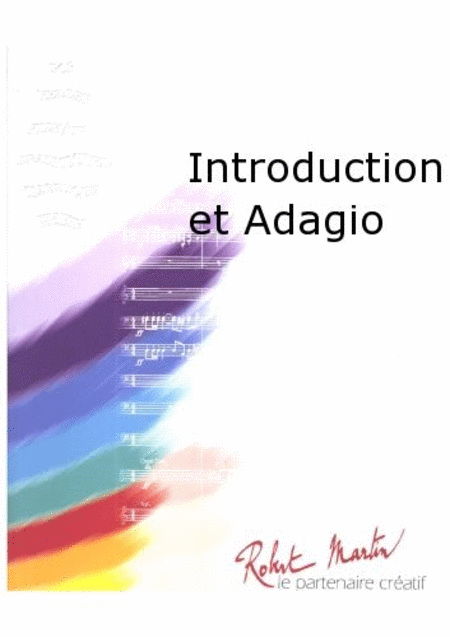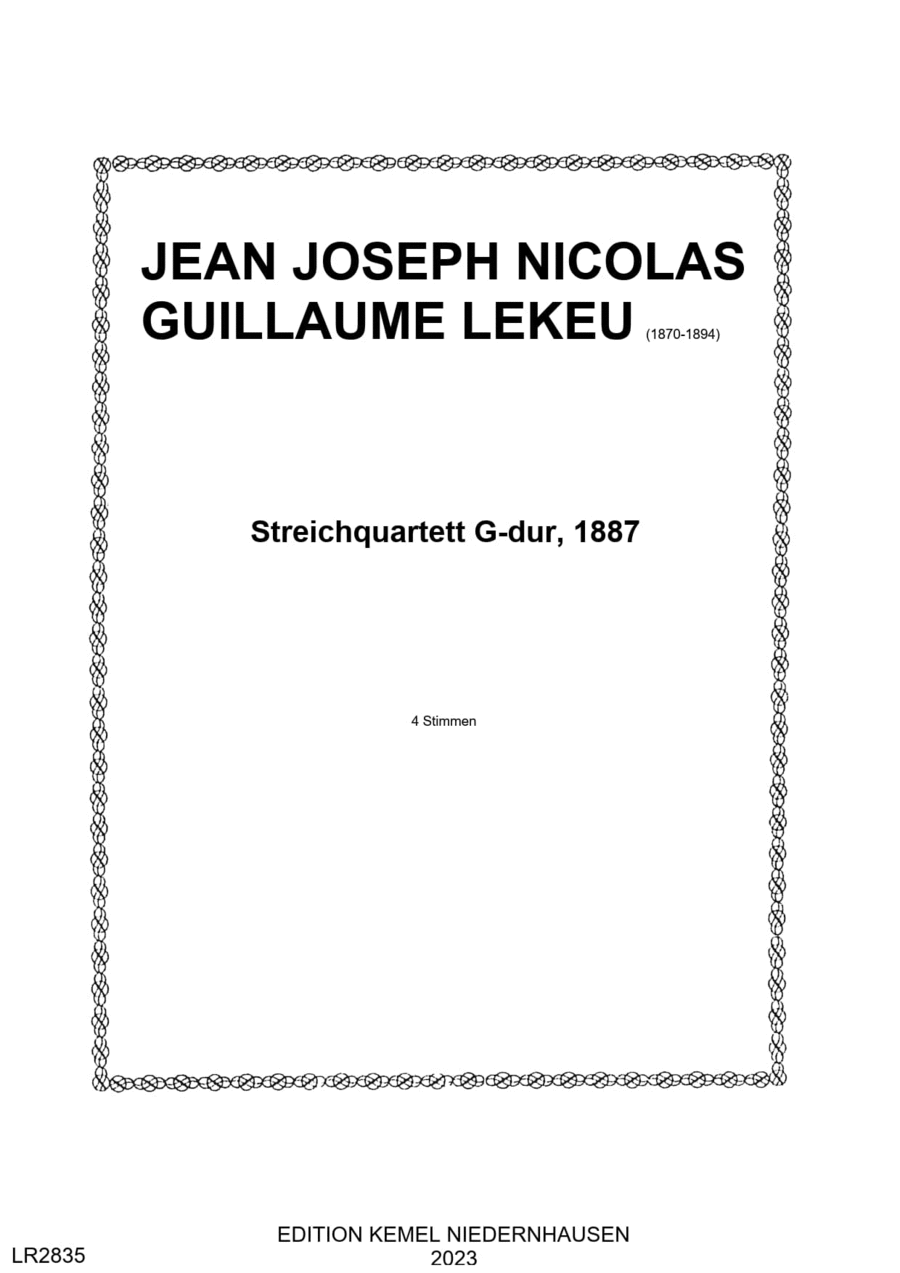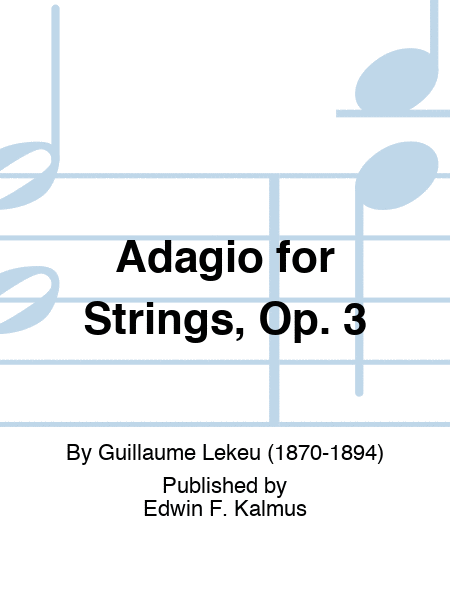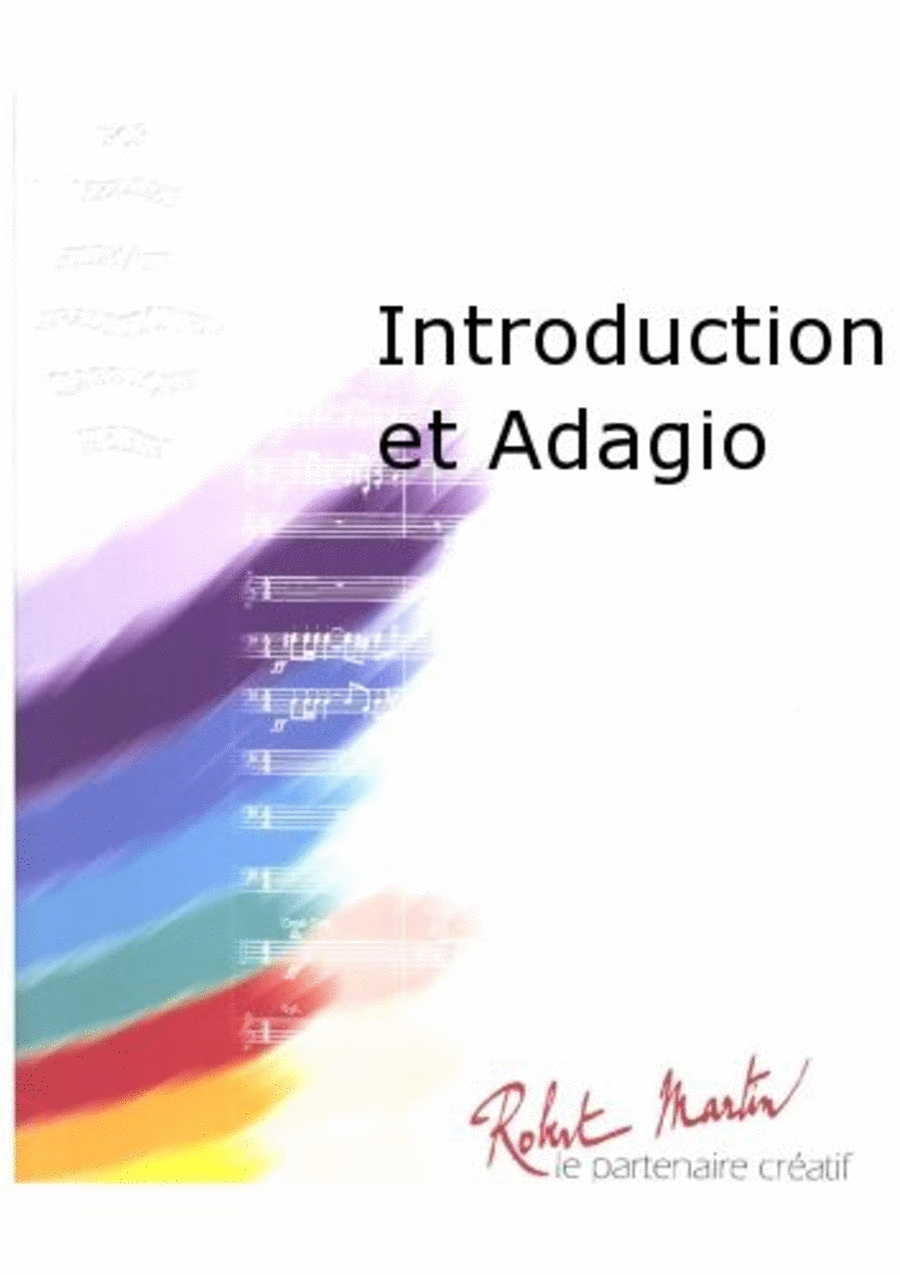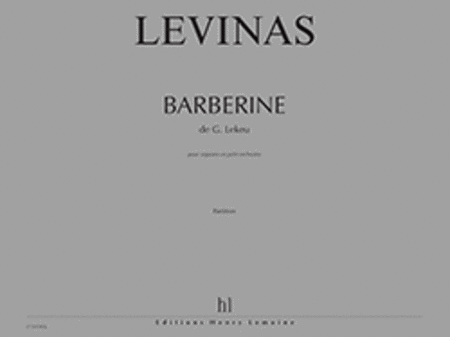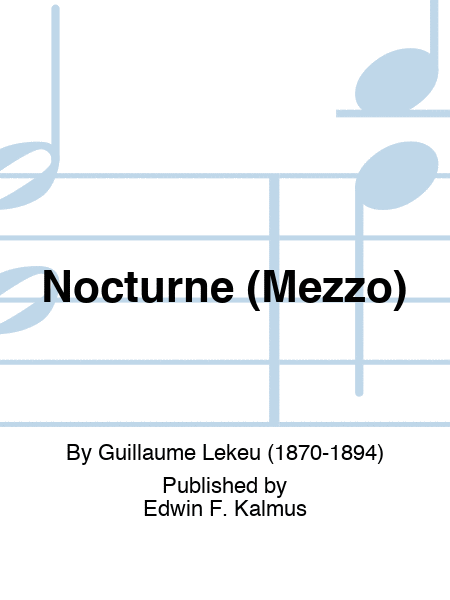Guillaume Lekeu (1870 - 1894)
 Belgique
Belgique
Jean Joseph Nicolas Guillaume Lekeu (20 January 1870 – 21 January 1894) was a Belgian composer of classical music.
Already in his first compositions, one can clearly recognize his personal style. In 1887 he said "bien plus, ce sera bizarre, dét ... (Read all)
Source : Wikipedia
 Belgique
BelgiqueJean Joseph Nicolas Guillaume Lekeu (20 January 1870 – 21 January 1894) was a Belgian composer of classical music.
Already in his first compositions, one can clearly recognize his personal style. In 1887 he said "bien plus, ce sera bizarre, dét ... (Read all)
Source : Wikipedia
Free sheet music of Guillaume Lekeu
15 sheets found sorted by:
Search
| ||||||||||||||||||||||||||||||||||||||||
© 2000 - 2024
Home - New releases - Composers
Legal notice - Full version

















